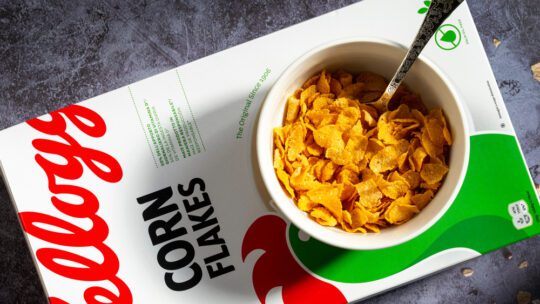
A fascinating case study on crisis communications is currently unfolding in the cereal aisle. It involves Kellogg’s, the global brand that brings Frosted Flakes, Rice Krispies and other cereal staples to supermarkets around the world.
The crisis stems from a Kellogg’s marketing campaign, launched nearly two years ago, that suggested families could add some variety to their dinner menu by enjoying cereal from time to time. And if the heat does not die down, it looks like the crisis could escalate to a boycott of the brand that is largely being promoted, tongue-in-cheek, by the Let Them Eat Cereal website.
A recent CNBC interview with Kellogg’s CEO Gary Pilnick led to the current crisis apex, in which he suggested “cereal for dinner” was “much more affordable” than other dinner options. In the days that followed Pilnick’s comment, social media lit up with criticism.
Many of the comments prompted by Pilnick’s interview cast Kellogg’s in the role of a greedy corporation that was out of touch with consumer needs. Within a week, a three-month boycott, proposed on TikTok and slated to take effect on April 1st, 2024 was announced.
It appears Pilnick’s comments shifted the “cereal for dinner” campaign’s focus from menu options to financial advice for poor families. Whether that was his intention or not is irrelevant—it’s how the public perceived it, and they quickly made it clear they didn’t appreciate it.
At the time of this article being written, Kellogg’s has yet to respond to its backlash from Pilnick’s comments. The “Press Releases” page on the company’s website had nothing related to “cereal for dinner,” and its social media accounts have remained silent on the matter.
So, how should Kellogg’s respond to the unfolding situation? Here are some thoughts.
Offer an Apology and Clarification
If you assume the best about Kellogg’s, it seems Pilnick made a simple misstep. It’s not a crisis driven by a safety issue, as recently unfolded at Boeing, as there is no crime involved or blatant attempt to mislead consumers.
Still, Pilnick’s comments led to consumer confusion, which is something the company could apologize for. It could also clarify what “cereal for dinner” is meant to be, reinforcing it as a campaign aimed at meal options and not financial advice.
The Kellogg’s crisis also illustrates what can happen when comments are not considered in light of the bigger picture. CNBC is a business-oriented news outlet that talks primarily about financial issues, not an outlet aimed at the average consumer. Pilnick’s interview was heavy on financial data, cutting several times to slides showing stock performance, so he could have easily assumed he was only talking to those interested in Kellogg’s stock and framed his comments for that audience.
In today’s media landscape, however, the lines between media channels targeting businesses rather than consumer audiences are extremely blurry. Had Pilnick considered that his comments might be heard and repeated by the average consumer, he might have couched them differently, being more sensitive to how those “under pressure”—as he described consumers—may feel about needing to seek out low-cost dinner options.
It’s interesting to note that CNBC host Carl Quintanilla asked Pilnick during the interview if he thought pushing cereal for dinner might “land the wrong way.” Pilnick’s response was a confident, “We don’t think so.”
Appoint a New Spokesperson
At this point, consumers have decided they aren’t happy with Pilnick, which means keeping him on the mic is not a great idea for Kellogg’s brand image. If a response is offered, it should come from a different executive, such as someone from the marketing or consumer relations teams. Someone savvy with crisis communications could also effectively convey a message that keeps the crisis at Kellogg’s from escalating further.
Allow for Open Communications
Making an official statement is important, but it will only go so far. In Kellogg’s case, the company can show consumers it cares about their concerns by engaging in open communications, including a public Q&A session in which frustrations can be aired and clarification offered.
By moving from a monologue to a dialogue, companies experiencing a crisis can also get a better sense of how their communication is landing. Open communication makes it easier to see when responses are not well received, giving the company a chance to adjust its approach to addressing concerns.
Add Actions to Words
Actions speak louder than words, especially in the area of crisis communications. If Kellogg’s truly sees “cereal for dinner” as a way to address consumer financial limitations, they should consider other efforts that could help, such as launching a food donation program or joining other initiatives that address food insecurity.
While not every crisis necessarily requires a response, companies that stay quiet in the face of a growing crisis lose the opportunity to leverage the course of the conversation and direct it in their favor. Companies that come forward with clarification and show a willingness to engage in a constructive dialogue, on the other hand, can better lay the groundwork for regaining consumer trust.
Thomas Mustac is Senior Publicist and Crisis Communications Expert at Otter PR.
